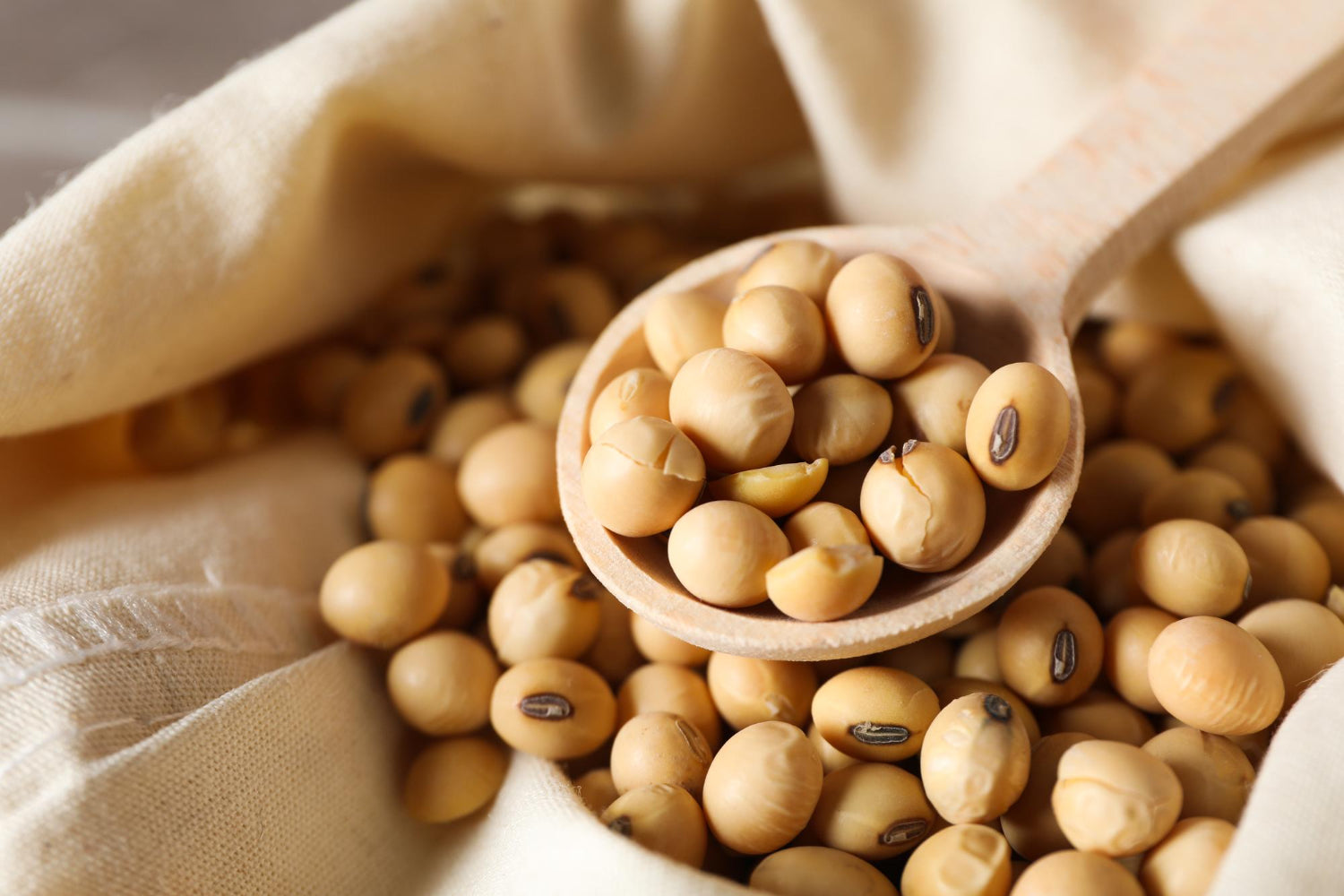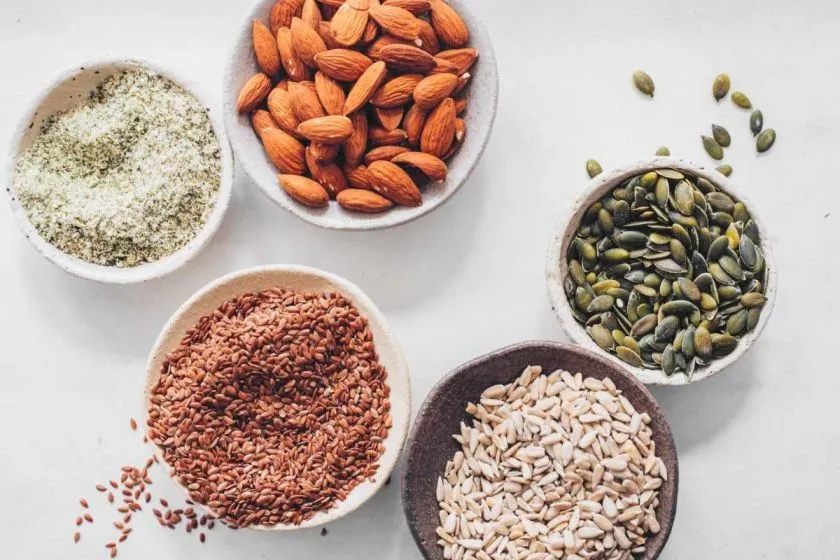People who choose to reduce weight first take off beneficial fats from their diet, which is incorrect. Though non-vegetarians may readily acquire their fat content from meat, it is challenging for vegetarians to locate good sources of fat as they do not eat meat, fish, or eggs. This post is thus particularly for you if you are a vegetarian and wish to know about all the foods that offer a dosage of beneficial fats.
Not every food item heavy in fats is excellent for your health. Some could, instead, include trans-saturated fats, sometimes referred to as bad fat. These fats raise your body's cholesterol and are very important in causing you to gain undesired weight. Thus, let us guide you in using your diet to ingest good fats.
Why Do Our Body Need Fats?
The fallacy is that fats just build up to make you seem plumper. This occurs solely in circumstances if you have ingested more fat than required. As vital for your body as proteins, minerals, calcium, and vitamins are also fats. Two of the several reasons fats help your body are:
-
Particularly more than carbs and proteins, fats are a great source of energy. Nine calories of energy come from one gramme of fat.
-
Fats help your body to store energy. Fasts and intense exercise sessions cause fats to burn into energy to provide strength.
-
Among the vitamins, some—including vitamin A, D, E, and K—are fat soluble. For these vitamins to be absorbed by the gut, fat makes things simple.
-
Moreover, fats support the development of good body cells. For every single cell they serve as a protective covering. Not only do lipids support appropriate growth of brain cells, but also body cells.
-
The body temperature is controlled by fat.
-
Fat gives your skin gloss and brightness, which accentuates its healthiness. It results in good hair as well.
-
Some highly important organs of your body, including kidneys, intestines, and the heart, are shielded from damage by fats. Around these organs, they create a layer that serves as a cushion helping them from any kind of damage.
Food Has Three Main Forms Of Fats
![10 Foods That Are High in Healthy Fats [December 2021] - NASM](https://blog.nasm.org/hubfs/healthy-fats-foods.jpg)
-
SFAs, or saturated fatty acids,
-
trans-saturated fatty acids
-
Monounsaturated fatty acids (MUFAs) and polyunsaturated fatty acids (PUFs) are two divisions of unsaturated fatty acids.
Bad Diet
Unhealthy fats mostly detrimental for your body are both saturated and trans-saturated fats.
Apart from weight addition, they raise cholesterol level, which may lead to several heart ailments and strokes.
Saturated fats abound in butter, hard cheese, cream, cookies, cakes, coconut milk, fatty cuts of meat, and fried dishes.
Good Diet
Good for your health and with anti-inflammatory effects are mono- and poly-unsaturated fats.
They reduce your blood cholesterol, have anti-inflammatory action, and help stop blood clotting.
Once more, poly-unsaturated fatty acids fit into omega-3 and omega-6 fatty acids.
For preserving a good health, both of these fatty acids should be practically present in your normal diet. Rich dairy foods high in healthy fats are whole milk and full-fat yogurt.
Blogger Sarah discussed her experience switching to a diet higher in healthy fats: "A few years back I found a little truth about all of the fat free and reduced fat goods I was eating....to make them taste delicious, they add a ton of preservatives and sugar. When comparing the calories, most of the items had double the calories of their full fat variation. She said, "I did something insane and went out on a limb. I adjusted my diet and started merely tracking calorie counts and let myself, gasp, consume full fat items. Try to guess what I lost weight and found my food tasted much better.
1. Almonds, Nuts, Seeds

-
Rich in omega 3 fatty acids, almonds, walnuts, and cashew nuts also find presence in fatty fish and are quite beneficial for your health. They enhance the beneficial cholesterol level.
-
Almonds are among the several kinds of nuts whose percentage of distinct fatty acids has been recently revealed in research. These monounsaturated, polyunsaturated, and saturated fatty acids lower LDL (bad cholesterol) in the body, therefore preserving excellent health. The graph below shows the precise fatty acid content value in nuts.
-
Try and consume a fistful of nuts instead of cookies, cakes, pastries or cereal bars each time you feel hungry between meals. In moderation, dark chocolate nuts can make a good snack.
-
Dry roasted hemp seeds, pumpkin seeds, chia seeds, and sunflower seeds can be top of salads, oatmeal, or in baked products; they have a somewhat nutty taste.
-
Apart from improving your health, nuts will keep you full for a longer period.
-
One abundant supply of omega 3 fats are flax seeds. Whole or powdered these seeds; fine powder them and keep them in an air-tight container.
-
Add to top your preferred smoothies or stir with milk. The healthiest and the best source of fat is this one.
-
Ground roasted nuts can help you make nut butter, a great source of minerals, vitamins, fiber, good fats, and protein.
2. Plant Oils
-
In meals, vegetable oil, olive oil, sunflower oil or canola oil are quite abundant and healthful sources of fat.
-
A poll including 1000 Americans revealed that 65% of respondents thought olive oil was good for their health while 5% thought it was bad. While 14% were unsure of its advantages or negative effects, 17% said it had no influence on the body or health of a person.
-
Use these oils anytime you cook; except olive oil, which is best consumed raw. For every person you are cooking for, use one teaspoon of oil.
-
Your salad dressing might also call for a tiny teaspoon or two.
-
Rich in omega-3 fatty acids, flaxseed oil breaks down at high heats and cannot be used in cooking. It goes great in your smoothies and salads.
-
Try making ghee if you enjoy consuming ghee. They are far healthier than what one purchases from the market.
-
Made from olive oil and sesame seeds, tahini boasts a lot of good unsaturated fats.
3. Soy Beans

- Rich in omega-6 fatty acids, soy beans lower the incidence of cardiovascular illnesses.
4. Mayo Based
-
One also finds really nice unsaturated fat in mayonnaise.
-
Before you buy, always read the label.
-
Mayonnaise will substitute spreading cheese or butter on your sandwiches.
5. Tofu
- Made from soy milk, tofu is cottage cheese often known as paneer. It tastes practically exactly like milk-made paneer. Especially polyunsaturated fats that could control blood sugar levels, it is among the healthiest sources of fat.
6. Soy Milk
- This is another excellent source of polyunsaturated fat that could help with the symptoms of diabetes, cardiovascular disorders, etc.
7. Maize
- Additionally an excellent source of unsaturated fat, corn oil might help to reduce cholesterol and cut the risk of cardiovascular illnesses.
Read Also: Guide to Cooking Tasty Roast Chicken
8. Avocados With Olive Oil
-
Good levels of mono-unsaturated fats found in avocados and olives might help prevent cardiac problems.
-
Every day have 1⁄2 an avocado. They help your memory as well as your heart.
-
Unsaturated fat abound in the green soft flesh of avocado.
-
Mash avocados as sandwich dressing, in salads or even eaten raw with a little of salt and pepper as a good and tasty snack.
-
Monounsaturated fat makes olives also heart-friendly fruits. They help your cholesterol level to drop.
-
Olives weighing one hundred grammes have just fifteen grams of fat.
-
Have olive salad or top your spaghetti with them.
9. Vegines
-
Usually devoid of fat are vegetables. Cooking and fried fries, however, renders veggies high in dangerous fats.
-
Prepare vegetables by roasting, drizzling only a little olive oil, or you may even stir-fry them.







